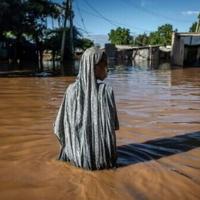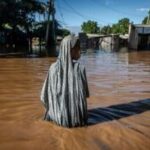The World Meteorological Organization (WMO) stated in a new report on Monday that Africa faces a disproportionate burden from climate change and the costs of adapting.
The WMO report highlighted that the African continent has been warming at a slightly faster rate than the global average, around 0.3 degrees Celsius per decade from 1991 to 2023, with North Africa experiencing the most rapid warming.
Extreme weather events such as high temperatures and heavy rainfall have affected various regions in Africa, leading to challenges such as flooding and drought.
Climate activists have emphasized the inequity in climate change impacts, as African countries bear the brunt of the consequences despite contributing less to global greenhouse gas emissions.
The upcoming UN’s COP29 climate summit will address the issue of wealthy nations supporting poorer countries in adapting to climate change effects.
The report highlighted that African countries are already facing significant impacts on agriculture, food security, infrastructure, and overall socio-economic development due to climate change.
Africa urgently needs to improve data collection, forecasting, and early warning capabilities to mitigate the impact of climate extremes on the population.
If adequate measures are not taken, millions of people in Africa could be exposed to drought, floods, and extreme heat by 2030, which will further strain poverty alleviation efforts and hinder economic growth.
The WMO stressed the importance of investing in early warning systems to reduce weather-related fatalities and improve preparedness for climate change impacts on the continent.





